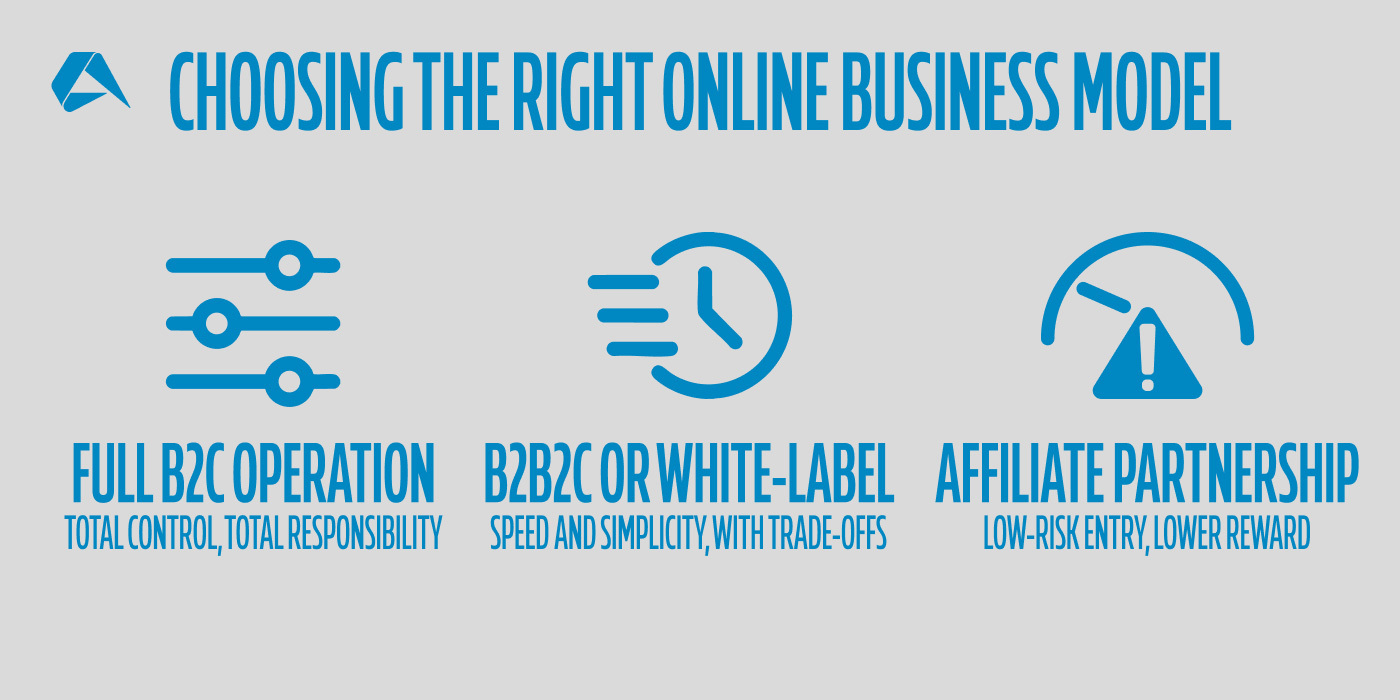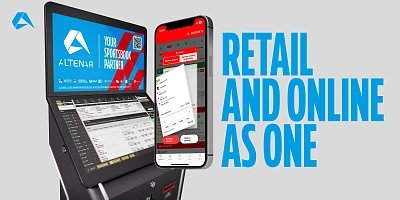Not long ago, digital expansion was little more than a side bet for many retail sportsbooks and betting venues. One that was often cautiously explored, yet typically postponed. But that moment has passed. Regulation is catching up, and player behaviour has already moved on. Moreover, competitors who once hesitated are now moving forward with intent. This isn’t about whether to go online anymore. It’s about how to do it in a way that strengthens what you’ve already built. Resourceful brands aren’t treating digital expansion as a separate channel, but as a connected arm of the business they’ve already built that enhances reach, loyalty, and long-term value.
This article provides a practical guide for land-based operators who are ready to make the move and determined to get it right.
Online Operation Isn’t a Side Project Anymore
It would be no exaggeration to say that, in 2025, few serious commercial betting operators view online expansion as a side project. Where regulation allows, it’s now central to staying relevant, competitive, and connected to how modern players actually want to bet. Spend time in any betting venue that’s linked to an online presence, and you’ll see it straight away. Bettors are checking odds mid-game, scanning QR codes to place mobile wagers, and syncing retail tickets with digital accounts.
Staff are answering questions about how to sync loyalty points or claim digital offers. The habits are changing, and it’s not just where people play, but how they expect those experiences to connect. This shift didn’t happen by chance. It occurred in practice, accelerated by the pandemic, driven by regulatory momentum, and is now ingrained in the preferences of digital-native players. For younger customers, convenience is the baseline. Mobile-first is assumed. And loyalty follows the businesses that meet them where they are, not where they were expected to be.
Meanwhile, global regulation continues to evolve. Countries once hostile to online gambling are legalising or formalising frameworks, inviting serious operators to claim their share before opportunists do. You don’t have to give up what works. But the idea that staying offline protects what you’ve built? That time has passed. What’s really on the table now is how to go online, and whether you do it in a way that strengthens your core business or compromises it.
Choosing the Right Online Business Model

Once the decision to expand online has been made, the next question is: what’s the best way to do it? There’s no single best answer to this question. The right approach depends on your regulatory footing, available capital, internal capability, and long-term vision for the brand. In practice, most land-based operators expanding online take one of three routes. Each comes with trade-offs in licensing, tech control, scalability, and operational exposure. What works for a regional group with a strong brand might not be suitable for a smaller venue testing the waters. But what truly matters is making a conscious decision that aligns with both your risk appetite and commercial ambition. Let’s break each one down.
Full B2C Operation
Total Control, Total Responsibility
This option takes the most direct path of obtaining a local or international licence, building or licensing your own technology stack, and operating under your own brand. You handle marketing, payments, compliance, customer support, and trading all in-house or through selected partners.
What it gives you: full ownership of your data, complete control over the product, and brand consistency across channels. For groups with existing brand equity and operational capability, this can be a decisive long-term move.
What it costs you: high upfront investment, increased compliance burden, and a need for deep internal expertise, or at least the right suppliers. Mistakes can be expensive, and scale takes time.
This model works equally well for established retail brands with loyal local followings that want to offer omnichannel betting experiences and have the resources and appetite to run the full stack and grow it globally.
B2B2C or White Label
Speed and Simplicity, with Trade-Offs
Under a B2B2C or white-label model, you partner with a licensed online provider who handles the operational backbone. You bring your brand, audience, and possibly your venue traffic. They supply the tech, compliance, and typically the marketing tools.
What it gives you: speed to market, reduced regulatory and technical exposure, and lower upfront cost. Ideal for testing the waters or operating in heavily regulated jurisdictions.
What it costs you: less control over the product and roadmap, shared access to player data, and a lower margin. Long-term scalability can be limited if the platform doesn’t grow with you. This model is standard across Europe and Latin America, particularly in markets where digital licensing is tightly controlled, and a local partnership offers the cleanest and fastest route to market.
Affiliate Partnership
Low-Risk Entry, Lower Reward
Some land-based operators start by monetising their footfall and brand equity through affiliate relationships. This might involve content, offers, or simple redirects to licensed online operators in exchange for CPA or revenue share.
What it gives you: minimal cost, very little regulatory exposure, and a way to build familiarity with digital without operational overhead. You’re referring traffic, not running the platform.
What it costs you: limited control, no direct player ownership, and capped upside. You’re growing someone else’s business more than your own. Still, for smaller venues or operators in jurisdictions without immediate digital access, this can be a useful transitional step. It also allows teams to build experience in digital acquisition and analytics before launching their own platform.
Summary Table: Online Expansion Models for Land-Based Operators
| Business Model | Best Suited For | Estimated Cost Range | Pros | Cons |
|---|---|---|---|---|
| Full B2C Operation | Larger operators with brand equity, internal capability, and long-term digital ambitions | €1M - 2.5M+ For initial setup, plus ongoing operational costs | Full control over brand, product, and data, highest revenue potential, build long-term value. | High regulatory and compliance burden, large capital and staffing investment, slower time to market. |
| B2B2C / White Label | Mid-sized or regional operators looking for speed and managed risk | €100K–€250K Depending on the provider and jurisdiction | Fast market entry, low regulatory exposure, access to turnkey tech and support. | Limited control over the platform, shared player data, less flexibility to scale or differentiate. |
| Affiliate Partnership | Smaller venues or operators in early-stage markets or without licensing access | less than €50K for setup and content/marketing | Low barrier to entry, minimal compliance risk, generates online revenue with little overhead. | No platform ownership, no direct player data, limited growth potential. |
Operational Readiness
Going Digital Demands a Different Kind of Mindset
Choosing the right model is one thing; running it well is quite another. It is not uncommon for land-based operators to underestimate the organisational rethink required, not just technically, but culturally, to support an always-on digital gaming business.
Online operations run around the clock. There’s no downtime between spins, deposits, or player support queries. That means building the operational layer to handle real-time monitoring, game performance, player security, and payment flow, among other tasks, all without the constraints of venue hours. Customer support, for example, must be fast, available, and informed, because digital players expect immediate answers, not business-hour callbacks.
Retention also looks different. In a betting shop, staff might engage with regulars or highlight promotions, but online it’s about smart segmentation, timely bet suggestions, and personalised odds boosts. Online, you need segmentation, CRM strategy, and behavioural insight to keep players coming back and loyal.
And then there’s the mindset. Running a venue with fixed hours and face-to-face transactions is a different world from managing uptime, latency, chargebacks, fraud, and user journeys, all of which occur simultaneously and often across multiple jurisdictions.
Those who approach digital as a direct extension of their retail business often risk falling short. Those who treat it as a discipline in its own right, however, have a greater potential for scaling.
The Pitfalls
What Land-Based Operators Often Underestimate
Being operationally-ready means more than staffing up and going live. It also means understanding the regulatory structures you’re entering, as well as the tax implications that come with them.
While traditional betting operators are not new to oversight, many land-based operators venturing online underestimate the complexities of taxation and licensing in the online environment. The choice between local and international licensing in the online arena isn't merely a matter of cost or speed. Ultimately, it has significant implications for compliance and long-term viability.
In this context, grey-market shortcuts in licensing may seem appealing, offering quicker entry and lower taxes. However, these paths come with risks. Operating in unregulated or loosely regulated jurisdictions without securing the proper licences can lead to severe consequences, fines and reputational damage. A high-profile example is the case of Betway, which the UK Gambling Commission fined £11.6 million for failing to fulfil obligations to prevent both money laundering and problem gambling. This record fine highlights the severe repercussions that can arise from inadequate compliance measures in online betting operations.
Moreover, the technical and compliance demands are also substantial. Operators must navigate tech certifications, regular audits, and adhere to hosting regulations. Ongoing obligations include meticulous reporting, stringent KYC and AML procedures, as well as securing a stable compliance infrastructure. These requirements are not one-time hurdles but continuous commitments that demand dedicated resources and expertise.
What Land-Based Operators Have That Online-Only Brands Don’t
Despite the challenges and pitfalls of expanding online, land-based operators possess a distinct set of advantages that pure digital brands often spend years trying to build - and some never do. These strengths provide a foundation that, if used wisely, can accelerate success and strengthen long-term positioning in the digital space.
Established Player Relationships
Land-based operators already have a customer base, with behavioural data, visitation patterns, and personal rapport built over time. This familiarity creates a ready-made audience for digital migration, reducing acquisition costs and making retention strategies more effective from day one.
Trusted Local Brand
Physical presence translates into credibility. Players are more likely to register, deposit, and return when the digital offer is backed by a brand they recognise from their own city or region. Online-only operators often lack this trust, especially in newer or cautious markets.
In-Person Acquisition Channels
Unlike digital-first brands, land-based venues can acquire online customers in person through their floor staff, promotions, signage, and live events. This opens up direct conversion opportunities that bypass expensive digital marketing funnels and build a stronger sense of relationship and reassurance.
Omnichannel Loyalty Opportunities
Unified rewards systems can tie digital activity to in-person play and vice versa. Points earned online can be redeemed on-site, for instance, and retail promotions can drive digital registration. This integrated approach increases overall engagement and keeps players active across both channels.
Immediate Community Reach
Betting venues are often embedded in local communities through partnerships, events, or simply a long-standing presence. This visibility enables hyper-targeted marketing and local activation in ways that digital-only operators can’t replicate without physical infrastructure.
A Compliance Culture That’s Already in Place
While some land-based operators may underestimate the added complexity of online licensing and tax structures, that doesn’t mean they’re starting from scratch. Land-based venues already operate under regulatory scrutiny, with established procedures in place for audits, KYC checks, AML measures, and responsible gambling initiatives. These foundations don’t automatically translate into digital readiness, but they do create a strong starting point. A compliance culture is in place, and that mindset is often lacking in younger, digital-only brands.
Venue-Linked Promotions
Physical locations can offer real-world incentives to support digital adoption, from free play vouchers and loyalty top-ups to venue-based tournaments and QR-linked challenges. These add real perceived value and turn sign-ups into experiences, not just transactions.
Physical Infrastructure for Support and Marketing
Call it a base of operations or a trusted drop-in point, but either way, having a physical hub helps. Whether it’s for customer service queries, payment validation, or brand-building campaigns, a venue can serve as a public-facing anchor for the digital offer.
Laying the Groundwork for Expansion
Before anything goes live, serious groundwork needs to be done. At this stage, decisions made behind the scenes will determine how well the online arm integrates with your existing operation, how fast you can move, and how much control you retain along the way.
Platform architecture is one of the first calls to make. Some operators prefer a turnkey setup to move quickly. Others opt for a modular approach, allowing them to maintain tighter control over core systems, such as payments, CRM, and content management. Both can work, but making the wrong choice can limit your options.
Legal and compliance preparation is another area that should be considered and initiated early. It’s not advisable to leave licensing requirements, tax exposure, data laws, and technical audits across your intended jurisdictions to later. Neither is operational capability. Will your team handle daily operations, risk, and retention in-house, or will you outsource key functions to experienced providers? There’s no right answer, only the one that fits your core capability and ambition.
Finally, in contrast to manual observations and reporting, new online operators must start to think in terms of data. A unified CRM and data infrastructure is the backbone of online gaming operations. If your player data is fragmented, your marketing, compliance, and customer insight will be too.
Hybrid Models Are the Future
The divide between land-based and online operations is steadily closing. This is not through replacement, but through convergence. What’s emerging now isn’t just a multichannel approach, but a hybrid model where physical presence and digital systems work in sync to amplify player experience and value.
Account linking is already making it easier for bettors to move seamlessly between their counters and phones, checking tickets, placing live bets, or claiming retail-exclusive promotions digitally. Soon, this won’t be a novelty, but will become the standard. Players expect consistency that aligns with one account, one wallet, and one relationship, regardless of where and what they play.
In extension to this, on-site promotions are also evolving. QR-based offers, loyalty bonuses, and time-sensitive activations are driving real-time digital sign-ups, capturing foot traffic and converting it into long-term online engagement. Loyalty systems will need to follow suit. A unified rewards model that tracks and rewards activity across all verticals is central to building lifetime value. When combined with integrated reporting and centralised CRM data, it opens the door to greater player insight and more meaningful customer segmentation.
Operators with the right tools will be able to scale this model quickly. However, the future isn’t about infrastructure alone, it’s more about designing experiences that bridge physical and digital channels and treating both as part of the same player journey, rather than competing markets.
How Altenar Supports the Digital Expansion of Retail Betting Operations
Ultimately, when land-based operators move online, they’re not just adding a new product. They’re stepping into a fast-moving, high-pressure environment where regulation, speed, and player expectations never stand still. Getting it right takes more than software. It takes a partner that understands the operational discipline of running a physical venue and knows how to translate that into something scalable online.
That’s precisely the kind of challenge Altenar is built to meet. Our technology doesn’t just sit on top of your business; it fits into it. From shared infrastructure linking kiosks, cashier systems, and player accounts to built-in regulatory support tailored to each market, Altenar becomes a trusted partner in unified gaming operations.
And when it comes to data, nothing is fragmented. Loyalty, behaviour, and CRM are unified across every channel, giving you a clear, complete view of your players and the ability to act on it. Deployment is also flexible. Retain control where it matters, or delegate day-to-day tasks through a managed solution tailored to operational needs. It’s your choice.
But tech alone isn’t enough. Altenar brings experience earned across dozens of markets, helping operators anticipate compliance challenges, cut through bureaucracy, and avoid the mistakes that stall digital growth.
Simplify complexity with Altenar’s retail-to-digital infrastructure, where ticket systems, real-time data, compliance tracking, and unified account management all connect. Schedule a demonstration today to see how the pieces come together in real time.













